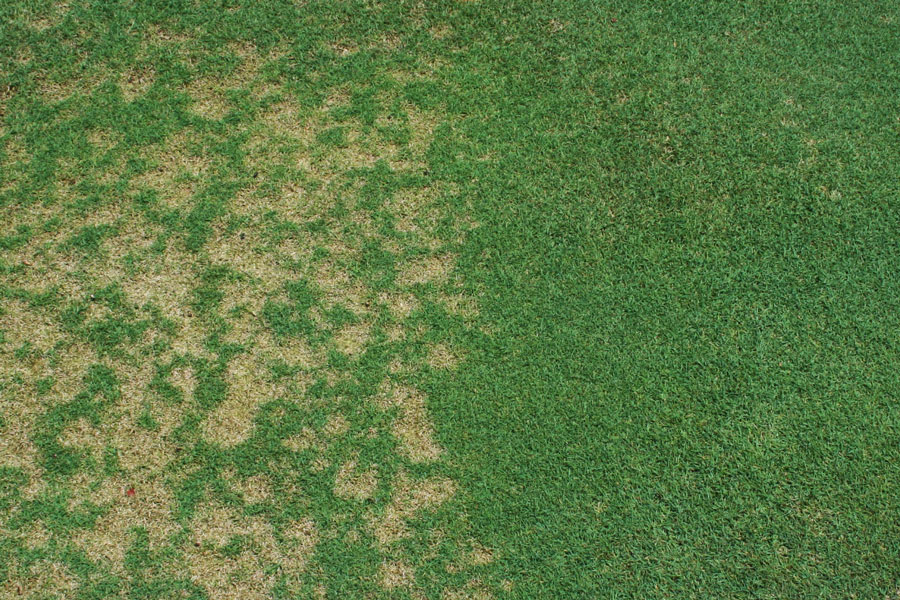Lawn Care



UGA Extension Search Page
UGA Extension home page, you can search any UGA Extension publication with key words in the top right corner.
Soil Testing and Preparation
Successful crops and gardens start with healthy soil. Farmers and gardeners who take the time to educate themselves about the nutrient and fertility levels of their soil, and to correct problems before they plant, save money and time and ultimately have healthier plants. This page provides information about soil tests and amendments for the home and commercial gardeners, including composting.
Ten Steps to a Healthier Home Lawn
Revised by Clint Waltz, Turfgrass Specialist and Alfredo Martinez, Turfgrass Pathologist Adapted from original manuscript prepared by Drs. E.A. Brown, Retired UGA Extension Plant Pathologist and G. Landry, Retired UGA Extension Agronomist
The key to disease control is a healthy plant. Under proper turfgrass management, disease-causing conditions are often reduced and healthy turf is maintained. The following management practices will help achieve vigorous, healthy turf and reduce turfgrass disease problems.
Lawn & Garden
Georgia's agreeable climate means that residents of the state have ample opportunities to exercise their green thumbs. Whether it's lush lawns or riots of flowers, fruit trees, and shrubs, home gardeners in Georgia have many options for beautifying their landscapes. Topics in this section include: Fruits & Vegetables, Lawn Care, Ornamentals.
Weeds
There are as many different ideas about favorite crops, plants, and flowers as there are farmers and gardeners, but everyone can agree on at least one thing: weeds are no fun! Whether they're crowding out your perennials or getting in the way of healthy forage, weeds present an ongoing challenge for anyone who wants to grow anything.
This section provides advice on controlling and preventing common weeds like crabgrass, pigweed, henbit, and chickweed to help commercial farmers and home gardeners have the most trouble-free growing seasons possible.
Weed Control in Home Lawns
Revised by Patrick McCullough and Clint Waltz, Extension Weed Scientist and Turfgrass Specialists
Original manuscript by Tim R. Murphy, Extension Agronomist — Weed Science
Weeds can be major pests of home lawns. Due to differences in color, leaf size, shape and growth habit, weeds detract from the natural beauty of desirable turfgrasses. Additionally, weeds compete with turfgrasses for sunlight, soil moisture, nutrients and space. Many weeds can quickly become the dominant species in a lawn.
Irrigation for Lawns & Gardens
Revised by Wesley Porter, Extension Irrigation Specialist
Original manuscript by Kerry Harrison, Extension Agricultural Engineer
Georgia averages about 50 inches of rainfall per year, which is more than enough to supply the total water requirements of most plants. This rain, however, does not always fall in sufficient quantities during the time of year when it is most needed by the plants. In order to maintain a lush green lawn and productive garden, supplemental water in the form of irrigation is often needed during peak water use periods.
Two basic types of irrigation are suitable for the home landscape: sprinkler irrigation and drip (or trickle) irrigation. Numerous types of sprinklers are available and, if selected properly, can be adapted to cover almost any area. Sprinklers are usually the best choice for turf areas. Drip irrigation has been increasing in popularity during the past few years and is especially suitable for watering individual plants such as shrubs and trees and can also work well for ornamental or vegetable gardens. Some drip irrigation systems also work well with row crops grown in the garden.
Turf Grass
Not all Georgia agricultural products cover your table. Some cover the playing fields and golf courses of the world. In 2009, almost 34 thousand acres of turf grass were harvested in Georgia.
Turf Grass Diseases In Georgia
Publications concerning disease identification and control.



